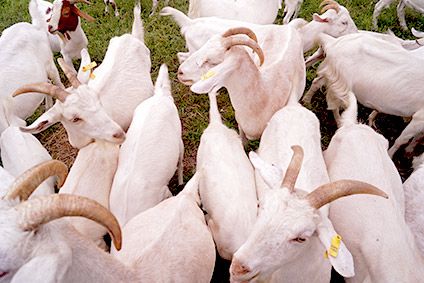
New Zealand is ploughing NZD29.7m (US$19.8m) into a five-year programme aimed at boosting the country’s market for infant formula made from goat’s milk.
The Caprine Innovations NZ programme has been launched between the Ministry for Primary Industries (MPI) and Dairy Goat Co-operative (NZ). The co-op supports 72 goat farmers across the country.

Discover B2B Marketing That Performs
Combine business intelligence and editorial excellence to reach engaged professionals across 36 leading media platforms.
One of the prime goals of the Primary Growth Partnership (PGP) is to increase the country’s export revenues from the dairy goat’s milk industry to NZD400m a year by 2023, along with bolstering research and farming capabilities within the sector.
The MPI did not say what the market value is for New Zealand’s goat’s milk industry in a statement announcing the partnership. Still, it said the programme will “develop innovative tools to enable all New Zealand goat farmers to measure and improve their performance, while ensuring any economic gains don’t come at the expense of the rural environment”.
Another objective of the Caprine venture is to strengthen the position of goat’s milk infant formula in New Zealand over its more conventional cow’s milk counterpart, according to David Hemara, the chief executive of the co-op.
Hemara added: “Because many dairy goat farm systems use off-paddock animal housing facilities there’s the opportunity to decrease the environmental impact of pastoral farming through conversions from other farming systems. Our programme aims to increase dairy goat numbers in the long term by 50% to over 100,000.”

US Tariffs are shifting - will you react or anticipate?
Don’t let policy changes catch you off guard. Stay proactive with real-time data and expert analysis.
By GlobalDataMPI director-general Martyn Dunne said the programme, which he refers to as Caprinz, will help to increase New Zealand’s research capabilities in health and nutrition, and also create new jobs in the goat farming community.
“In addition to the economic benefits, the Carprinz PGP programme also aims to create more than 400 new jobs on-farm, improve dairy goat farming practice and sustainable production, and boost capability across the industry,” Dunne said.
“Due to the uniqueness of our New Zealand pastoral farming, developments by the programme won’t be able to be easily replicated overseas, ensuring benefits are retained in New Zealand.”





